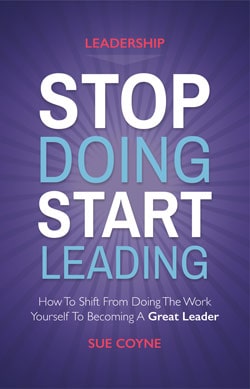As human beings we are endowed with mirror neurons and as a result we take on the emotional state of others. This means that 70% of what happens in organisations comes from imitating the leaders.
Leaders create the climate in organisations. So it is our responsibility as leaders to manage our emotional state and be role models of sustainable ways of working.
In order to do this we need to understand how to manage our own energy so that we are resilient and available to energise other people. There are four energy zones you could be in at a given moment in time:
PEAK PERFORMANCE ZONE
How does it feel when you are at your best, in the peak performance zone? When I ask this question most people will mention positive feelings such as happy, alive, powerful, energised or inspired.
They talk about feeling present, centred and balanced, and there is no doubt that it feels good to be in this zone. Often, when operating in this peak performance zone you are in a state of flow.
In many business and finance organisations we are expected to perform at a high level 95% of the time. If we compare this to athletes we see that they are only expected to perform at their best for 5% of the time.
The rest of the time they are in training or recovery. Sleep, meditation and napping are all now carefully incorporated into the training plan of elite athletes because it has been shown that as a result they recover faster and perform better.
RE-ENERGISE ZONE
How often do you override what your body needs? How often do you grab a coffee or cigarette, some food or chocolate to keep you going?
Over the long-term it is not healthy to ignore our body in this way. Recovery builds energy so it builds our resistance when things get really bad. If we are not giving ourselves space during the day it doesn’t help us to be at our best or help our brains to be creative.
In many business and finance organisations we are expected to perform at a high level 95% of the time
How often during the working day do you take some time out to re-energise? For most people this leaves them feeling peaceful, relaxed, at ease and calm. Re-energising in this way enables you to be at your best more of the time.
How could you fit more time to re-energise into your day? One suggestion is that you set the alarm on your phone for every one to two hours and take a short break. In the break you could drink some water, do a two-minute mindfulness exercise, practice breathing deeply or have a short walk.
A good day begins the night before so a vital part of your recovery programme is making sure you get enough sleep (seven to nine hours is recommended).
STRESS ZONE
When the demands on us exceed our capacity we go into the stress zone. Some leaders I have worked with say that they spend as much as 65% of their time in this zone.
People tend to feel negative emotions when in this zone such as frustration, anxiety, anger and fear, which often send us into fight, flight or freeze mode. This stress response shuts down our pre-frontal cortex, which means we aren’t able to perform at our best. Not only that, our body is flooded with the stress hormones cortisol and adrenaline.
Our stress response mechanism is meant to be short-lived and it is not good for us to have the stress hormones in our bodies over a sustained period of time. If this happens there is a risk of burnout.
 BURNOUT ZONE
BURNOUT ZONE
When you are running on empty you can’t cope, you are reactive and you make bad decisions. You are very transactional and just want to cross things off your to-do list, which means that you miss unexpected problems and issues.
People tend to feel negative emotions when in this zone such as frustration, anxiety, anger and fear, which often send us into fight, flight or freeze mode
This place of exhaustion and listlessness is not a good place to be at all. Stress and burnout diminish performance for most people. So, if you are to avoid stress and burnout and be at your best more of the time you need to build recovery breaks into your working day and make sure you get enough sleep.
The evidence we now have clearly shows that burnout not only generally inhibits performance but also has an adverse effect on the bottom line of the business over the long term.
What is more, it destroys people’s health causing healthcare costs to increase due to preventable stress-related illnesses. So managing your personal energy is not only beneficial for you but also to your organisation.
About the blogger
 Sue Coyne is the author of the recently released Stop Doing, Start Leading – How to Shift From Doing The Work Yourself To Becoming A Great Leader.
Sue Coyne is the author of the recently released Stop Doing, Start Leading – How to Shift From Doing The Work Yourself To Becoming A Great Leader.
Sue has 20 years of business experience with the latest thinking on leadership and advanced coaching skills and qualifications.
She has made the shift from expert (in marketing and market research) to effective leader and then to executive team and board member.
Coyne pieced together her own leadership development programme through reading and attending courses and understands that nowadays leaders are time poor and need time effective access to the right support and skills development.




